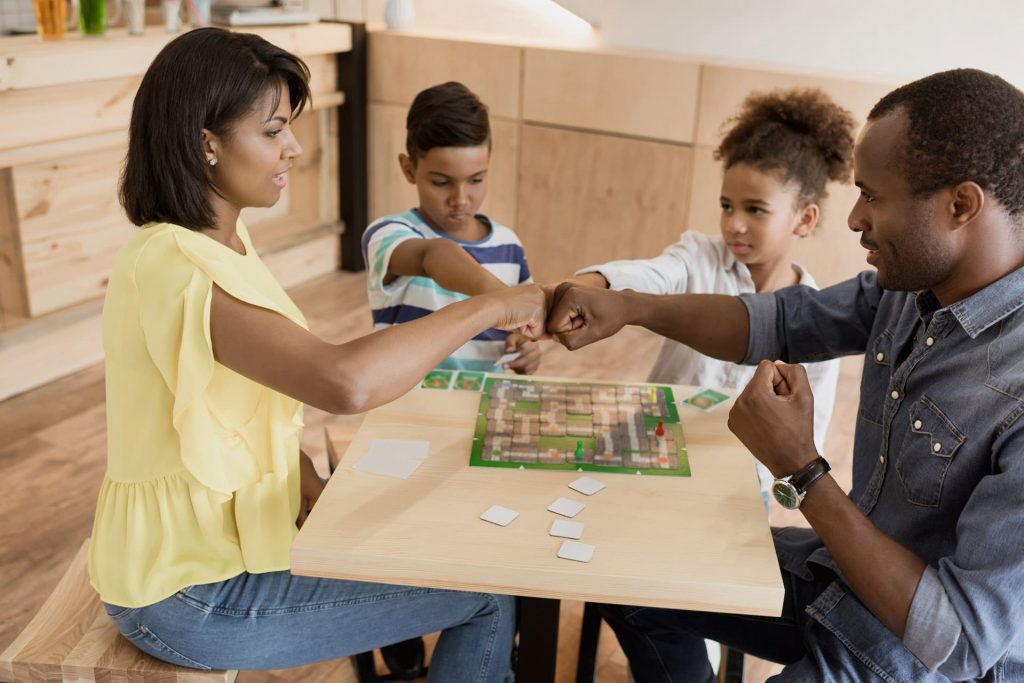A Note from the Editor
This week’s featured guest post is by psychologist, Dr. Joanna Fava.
Dr. Fava wrote this article for the clients of her therapy practice, to help them cope with the stress and uncertainty of the unfolding coronavirus COVID-19 pandemic. As soon as I read it, I knew it was something we should share with the users of www.rtor.org.
It offers strategies, tips, and online resources for managing stress and difficult emotions during this challenging time for all of us.
Jay Boll
Editor in Chief
I thought I’d put together a guide to help myself, my clients, and others cope with the increasing fear, depression, stress, boredom, confusion, and isolation surrounding the new coronavirus COVID-19 pandemic. It is a difficult time for many and stressors from work (or lack thereof), family, school, and the situation itself can overwhelm us, depleting our immune systems and making us more susceptible to both mental and physical illnesses.
I urge you all to take a break from the stress and ask yourself, “What can I do for myself right now to make myself feel a little better? What do I need?” and then do something to help yourself feel a bit more in control. After all, we cannot control the coronavirus pandemic or what goes on outside our homes. We can, however, control how we respond and how we feel moment to moment.
We have choices. Pay attention to yourself and what you need and make intentional and mindful choices throughout your day to break up the worry, stress, boredom, or isolation.

The first part of this post includes a list of things to do to cope with lower levels of emotion, such as the day-to-day stress, aggravation, sadness, loneliness, anxiety, etc. Adding some of these activities into your day can help prevent these feelings from becoming overwhelming. If they do become overwhelming, you can refer to the second part of the post for ideas on those “red zone” moments when you really need to try to calm down but don’t know how.
The last part of this post includes a list of online resources that I have seen over the past few days. There are many more I didn’t list. Religious organizations are hosting free virtual prayer sessions; gyms are doing online classes; charities have creative ways to engage with others; therapists and healers are offering free telehealth workshops and support groups. There are many more options available if you look for them.
Spend time finding something that will help ground you and keep you calm. It’s far more productive in the long run than watching the never-ending stream of panic regarding the virus. If there’s a hobby or activity you enjoy, see if there is an online way to participate. Or, just go outside, take a breath, and relax your body and your mind.
Many of us went from highly structured, routine days to absolute mayhem! Create a structure (set an alarm in the morning rather than waking up WHENEVER) and organize your day with what you want or need to do. Then try to follow it as best as possible.
We will get through this together. Stay healthy and well. And for all of us who have said, “I don’t have enough time,” maybe now you do. How are you going to spend it?
Strategies for Managing Emotions During this Period of Isolation and Stress*
1. During Periods of Lower Emotions
Activities – Puzzles. Board games. Coloring. Singing. Play an instrument. Watch a favorite movie or TV show. Play video games. Draw. Cook. Bake. Write in a journal. Read. Listen to music. Watch funny YouTube videos. Play cards. Look at pictures. Put on makeup. Do yard work or gardening. Go outside and listen (the wind, the birds, rustling of leaves, chatter, rain). Play with your pet. Knit/crochet. Take pictures. Work on the car. Fly a kite. Go for a drive. Write a blog.
Contribute – Help out a neighbor. Call or text a friend and see how he or she is doing. Reach out to someone you haven’t spoken to in a while. Help around the house. Clean up or fix something. Create a bag of donations of items you don’t need anymore. Make a card for someone. Help someone with homework or schoolwork. Take care of your pet (for example, walk or feed the dog). Order takeout from your local restaurants that are struggling.
Create a different emotion – Watch a funny show/video/movie. Listen to a comedian. Ask Alexa to tell you a joke. Listen to soothing music (if you’re feeling anxious) or upbeat music (if you’re feeling sad or down). Do something silly. Remember a funny thing that happened in the past in great detail. LAUGH OUT LOUD. Count your blessings.
Push away the stress or the urge to react in a way that could make things worse – Walk away from the stressful situation if possible. Go for a hike. Put the stress in an imaginary box and put it on an imaginary shelf (you have control of your mind). You don’t actually have to act on emotions or urges). Make a choice to delay acting on impulses for an hour and do something else to pass the time. Hopefully, in that hour, the urge will subside.
Think of something else – Read something interesting or a thriller that you can’t put down. Do crossword puzzles, sudoku, or challenging riddles. Count backward from 100 by 3s. Do the alphabet backward (then try to do it faster and faster without messing up). Name all 50 states. Name all (pick any category: for example, NFL Teams, Songs by a particular artist, colors, US presidents, countries in Europe, words that start with the letter “G,” etc.). Work on something you want to accomplish.
Movement – Do yoga. Stretch. Dance. Go for a walk/hike/run/bike ride. Do jumping jacks or sit-ups. Practice karate or tai chi.
Soothe your senses – Take a warm shower/bath. Listen to soothing music. Light a candle or spray some essential oils. Stargaze. Put on your favorite lotion/cologne/perfume. Bake and enjoy the smells (and tastes). Make tea or coffee and enjoy it fully through your senses. Smell flowers. Eat your favorite food (in moderation, of course) and enjoy each bite mindfully. Put on your most comfortable clothes and enjoy how they feel. Give yourself a manicure or pedicure.
Imagine being someplace else – Where is your favorite place? A beach? A ski slope? Someone else’s house? A Park? Go there in your mind. Imagine every detail. What sounds do you hear? What do you smell? What do you see around you?
Give yourself a brief vacation – Turn off phones or other devices. Unplug and relax momentarily to recharge yourself – emotionally and physically. Take a nap. Stretch. Go outside and breathe some fresh air.
Buy something (online) mindfully – And within your limits, so you don’t create an additional stressor.
Be kind to yourself – Validate yourself: “This is hard, and I’m doing the best I can” or “This won’t last forever. I will get through this.”
Set a long-term goal and determine the steps towards it and then take the first step – So if you’ve been meaning to write a blog, determine what the steps are (for example, create a list of ideas, write an article/post, decide on what forum to post it, etc.) and begin to make progress.
Write down your own ideas.
2. During Periods of High Emotions
Intense exercise – Run sprints up and down the block. Run up and down the stairs. Do pushups or jumping jacks. Hold a plank for 60 seconds. Do wall sits. Lift weights.
Change your body temperature – Dip your whole face in COLD water for 10 seconds. Take a breath and dip for another 10 seconds. Breathe and repeat (for a minute).
Paced breathing – Inhale for a count of 5; exhale for a count of 7 (hold your breath for the remainder of the count if you can’t inhale or exhale for the full count). Do this for 5-10 minutes! It will be uncomfortable at first since your body isn’t used to breathing so slowly. Keep going, through the discomfort until your body regulates and you feel calmer.
Progressive muscle relaxation – Tense and release your muscles one at a time, starting from your toes and working up to your face. Hold the tension for 5 seconds, squeezing tightly, then release slowly and fully. Exhale and move to the next muscle group. There are lots of youtube videos to guide you in this as well.
Create a different intense sensation – Hold ice cubes in your hands until they melt. Chew ice cubes. Listen to loud music. Take a cold shower. Squeeze a stress ball. Pet your dog or cat.
Make time for something meaningful to you – Pray. Meditate. Do something kind for yourself or others. Take steps towards a goal.
Clean vigorously – Scrub the tub or sink. Vacuum the house. Organize mail/papers/clothes.
Plan something awesome for when this stress is all over – A trip you will take. A party you will throw. People you will see. Someplace you will go, etc. Doing this will help you stay in the mindset that THIS WILL PASS and WILL NOT LAST FOREVER.
Do not stay in bed – Get up and shower, get dressed, go outside, eat something, etc. While you can’t do everything, you can do something.
Call your therapist or a therapist and schedule a teletherapy session – There are many of us willing to help!
Write down your own ideas.
*Compiled from various sources including Dialectical Behavior Therapy Skills Training Handouts and Worksheets, Second Edition by Marsha Linehan (2015).
Helpful Websites for Distraction while Waiting Out the New Coronavirus Pandemic:
Virtual Tours of Museums around the World
youtube.com – Funny dog videos, kids laughing, bloopers, yoga or other workout videos, how-to videos (makeup or fixing something around the house – there’s something for everyone!) BE MINDFUL when selecting. Pick something intentionally to improve your mood.
The Metropolitan Opera Streamed Online
Boredom Busters – Ideas for families.
Virtual Tour through US National Parks
Duolingo App – Practice a foreign language.
Educational/Fun Ideas for Kids & Families
Be Creative! Pinterest, Instagram… there are ideas everywhere
About the Author: Since 2012, Dr. Fava has worked at a private group practice (CCDBT) in Long Island, NY, where she created the Trauma Treatment Program, of which she is the director.
Dr. Joanna Fava is a Clinical Assistant Professor of Psychology in Psychiatry at Weill Cornell Medicine, where she supervises other clinicians in evidence-based treatments. She also runs therapy groups in Scarsdale, NY teaching coping strategies to individuals struggling with anxiety and depression. Dr. Fava specializes in using individual and group CBT and DBT to treat depression, anxiety disorders, posttraumatic stress, and borderline personality disorder with adult and adolescent patients. She gave a TEDx talk on exceeding expectations and speaks regularly on various topics related to mental health and wellness.
The opinions and views expressed in this guest blog do not necessarily reflect those of www.rtor.org or its sponsor, Laurel House, Inc. The author and www.rtor.org have no affiliations with any products or services mentioned in this article or linked to herein.
Recommended for You
- How a Health Cleanse Can Reset Your Body and Mind - April 16, 2025
- The Truth about Relapse in Addiction Recovery - April 14, 2025
- The Power of Peer Support in Mental Health Recovery - April 10, 2025








Great information. Enjoyed reading about these COVID-19 survival tips.